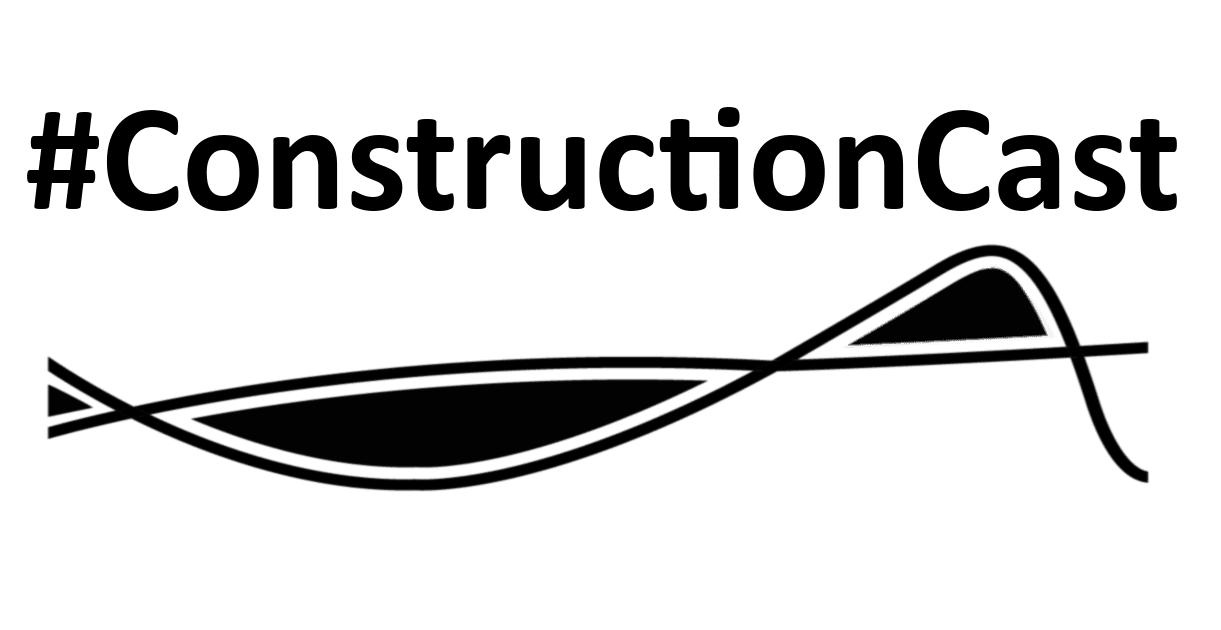6th October 2021 saw the first live #constructioncast at UK Construction Week in Birmingham. Speakers included Karen Kirkham, the Chair of the JCT and Head of Construction at BDB Pitmans and Ian Yule a partner at Shoosmiths. Justin Mort QC a barrister from Keating Chambers also joined us with Paul Gibbons, CEO of Decipher Consulting. The session was chaired by Annie Clift. The following are our notes from the event, they should not be construed as the exact words or opinions of the panellists.
Construction Contracts
What are the upcoming changes to the JCT Contracts?
The JCT no longer produces reactive loose amendments and produces a single consolidated edition every few years .JCT proceeds by consensus and relevant parties have to agree on changes being made. With a sudden crisis like COVID, it is hard to rush through changes as parties have different views. Practically speaking, in terms of contract notices and contract formation COVID has brought to the forefront the need for electronic communication.
JCT are also reviewing subcontract forms to make them more user friendly. Might it be possible to include them in a smaller range of contracts with optional clauses?Finally, gender-neutral grammar has also been implemented into all the documents to make them a little more 21st Century. Or as one commentator put it recently, “very 2017”!
How have recent events impacted procurement?
Recent events, from Brexit to COVID have already impacted the way procurement works in the construction industry but according to our panellists, this is just the beginning. Karen suggests the use of electronic forms to follow schedules and other processes more easily as well as BIM.
Many things are prefabricated as modular construction becomes more prominent. Therefore, is the involvement of groups needed in contract writing to represent the people who aren’t necessarily seen as being a part of the “construction” procurement process now, but may be in the future?
Material Shortages & Disputes
Are material and labour shortages going to lead to large dispute in the long run?
Ian explains that he has already seen Brexit and Covid come up in claims. Claims for delay due to material shortages are the least likely to be successful as these are unlikely to amount to a force majeure event in the JCT, for example.
He notes that the NEC form gives contractors a little more scope for time and money claims. However, the material shortages are unlikely to cause more disputes, because it is difficult for contractors to argue for material shortage claims as again, most contracts do not accommodate this event. Whether in the future these contracts may change and accommodate shortages is unknown.
How to set up a project to avoid disputes in the long run?
Due to the nature of construction, disputes will never disappear entirely, however a lot of progress has been made.
A stepped or tiered dispute resolution system has been found to be useful when implemented in a contract. It may not always be used or always be useful throughout the project, but such a system provides a useful statement of intent or starting point. Even if you do want to sidestep it for adjudication later, a tiered process can be helpful.
Avoiding Disputes
Justin of Keating Chambers notes that as a barrister, by the time clients get to him it is usually too late to avoid the dispute.
His experience is a mixture of disputes decided in adjudication where the parties have (in theory) 28 days to obtain a decision and other methods that allow you years and as a result those disputes are slow burners.
As a barrister or any participant in the dispute process it is imperative to identify the possible outcomes of the dispute from the outset. With every case you must consider the merits and demerits of the case: the range of possible outcomes. If you sit down with a client from day one and outline everything and give the range of outcomes from those items, then it is more likely you will manage the case and people’s expectations.
Common mistakes that make disputes more difficult
Paul from Decipher believes one of the most common mistakes made throughout the life cycle of a project is not getting to know the contract from the start. Look at the hard copy contract, make sure you understand it. If you do not understand it, then ask someone for help.
The parties Decipher represent must usually prove their claim with good records. Stating what you plan to do and then reporting what you did is critical. Good record keeping means keeping records contemporaneously – i.e. the day something happens, not weeks after.
Baseline programmes should be established and agreed with the client, and need to be updated regularly. Photographs needs to be taken, dated, with a wide view, recording location and time. Allocation sheets need to be completed and align with the work breakdown structure of the programme. Project records must include accurate descriptions, start and finish dates. Do not wait and see, deal with issues as soon as they arise.
One of the biggest issues in the construction industry is that we are short of staff, so the questions is how do you keep these good records and who will do it?
When all these avoidance measures fail, what advice can you give people when they prepare for hearings?
Understand and focus on the items that have real financial value – there is a good chance that with this focus, a dispute will result in a positive financial outcome. The whole team needs to be on board and work together for this outcome.
In every construction dispute of any complexity Justin has been a part of, only a very small part of the documents submitted will be looked at by the tribunal, typically in relation to a small number of key issues. So it becomes essential to identify or predict those issues and to ensure that your submissions and documents on those are good, rather than proceeding evenly across a broad front.
Ian advises putting items in a variations list. It costs valuable money to argue about menial costs on the list with the adjudicator so to avoid this. Be sure to focus on the big-ticket items.
Future trends and the New Normal
Virtual hearings
Justin has positive views toward virtual hearings: everyone in the team can attend the meeting since people do not need to travel. Construction disputes are often technical and involve spreadsheets and programmes. Remote hearings lend themselves to that because you are looking at on a screen. In addition the advocate can control the process through screen sharing. Anyone interested in the hearing can also tune in and watch it live which is new and provides an element of access to the justice system previously unavailable.
In general there is a strong movement against the continuation of virtual hearings in court proceedings. People typically refers to the need to ‘read’ the room and the like. However, as an advocate Justin disagrees: when cross examining everyone can observe and focus on the witness’s facial reaction. In addition the witness gives evidence from their office or home – a familiar environment which is fairer on them. Remote hearings are good for access to justice as well and they allow whole team involvement.
Karen also is a fan of remote working. JCT meetings are much more democratic in her opinion now because attendance is higher. Everyone can log on, rather than travel to one location that is inconvenient. As a consequence the meetings are much more efficient and inclusive.
Ian believes the procedures to stop high court proceedings will likely cease or significantly diminish in future. The pre-action process makes you appreciate things and has been successful, Ian believes this is an area that will likely grow.
In contrast, Paul finds that the disputes in court and tribunals are in a 2D format meaning there are a lot of documents. Often you have to lead the judge or tribunal by the hand to show them what the documents mean and say. This is hard to do virtually. However, Paul believes that younger people are needed in the industry and that as a whole, the construction industry needs to become more electronic.
NB – The above are notes we made at the event, and should not be construed as the exact words or opinions of any of the speakers. Thank you to all who participated and joined us in Birmingham.

